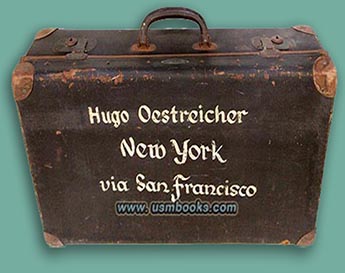| The images below show some sides of the many pieces of rare original World War II era ephemera we discovered in Hugo Oestreicher's suitcase, at a size large enough to read easily. They are indisputable evidence of the thriving Jewish business community and active cultural life in the Jewish Zone of Shanghai. Shanghai and its Shanghai International Settlement for Stateless Persons is notable as the only place in the world that unconditionally offered refuge for Jews and others escaping from Nazi Germany. The material includes multilingual concert programs, programs for charity events organized by the Shanghai Musicians Association of Stateless Refugees and Economic Office of the Juedische Gemeinde Shanghai, a rare ticket for a seat of a Rosh HaShanah and Yom Kippur religious service in 1944 (No entry allowed during prayers!), a Bank of China 5 Yuan note, and fascinating German language and multilingual advertising for butcher shops, typewriter repairs, watchmakers and jewelers, furriers, European bakeries, fashionable clothing stores and tailors, German tea rooms, Viennese meat markets, etc. |
to return to the main Hugo Oestreicher treasure trove web page. |
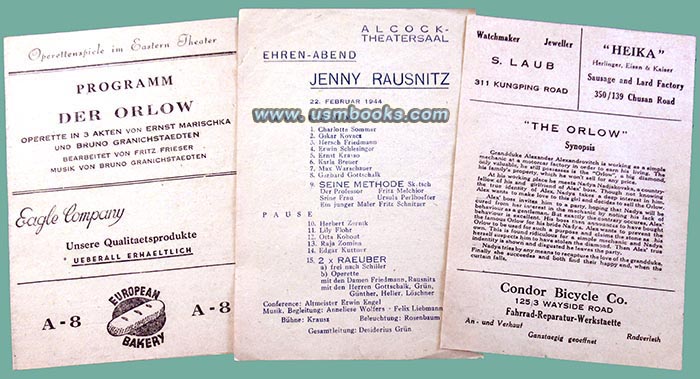 |
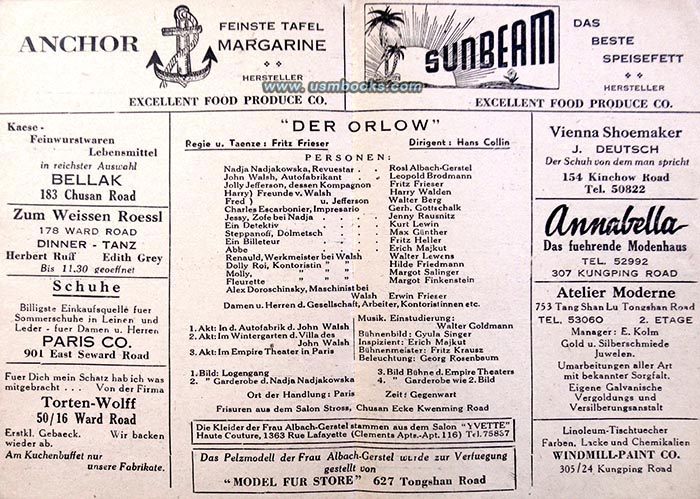 |
|
It is clear from the 30+ pieces of rare ephemera that Hugo Oestreicher, his wife their daughter Gretl and son-in-law Arnold Warschawski lived, worked and remained in Shanghai, in the Jewish Zone of that city, under Japanese occupation for the duration of World War II. |
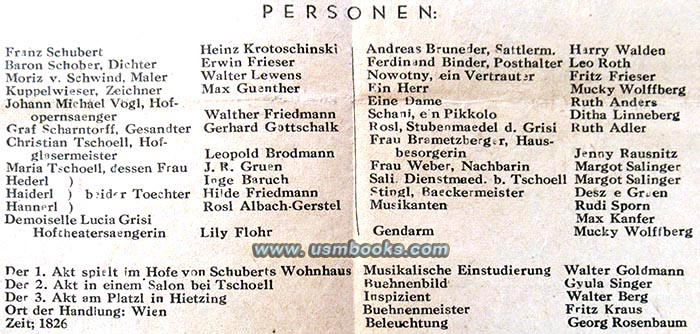
Ermetzhofen is a hamlet in Bavaria where both Hugo Oestreicher's father Levi and mother Mina were born and died. Hugo had his butcher shop there, and like his father before him he was head of the local synagogue as late as 1932. Ermetzhofen is where Gretl Oestreicher-Warschawski was born in 1911, and today it is still the home of the Jüdische Friedhof Ermetzhofen, a huge Jewish cemetery.
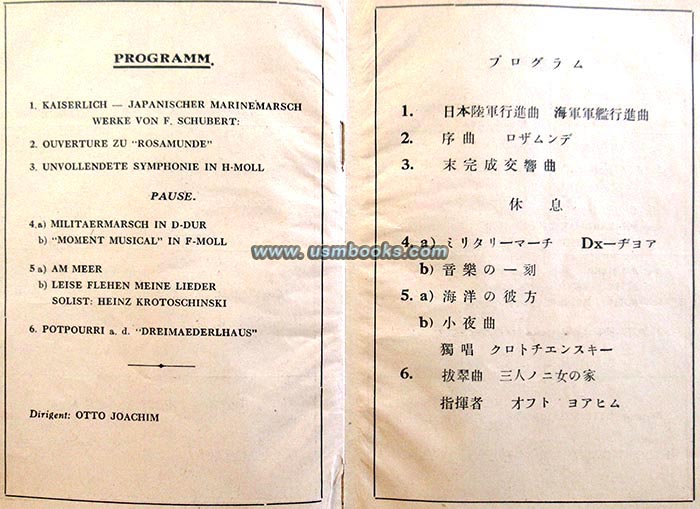
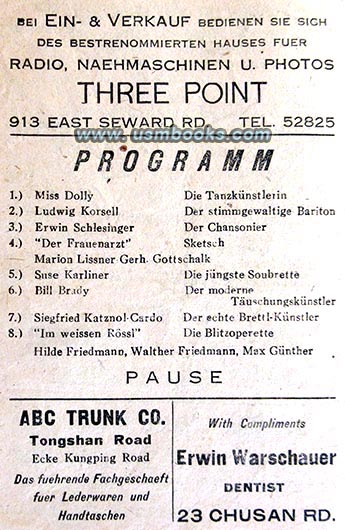
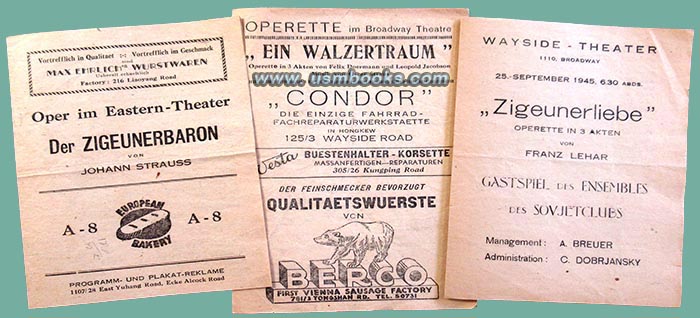 |
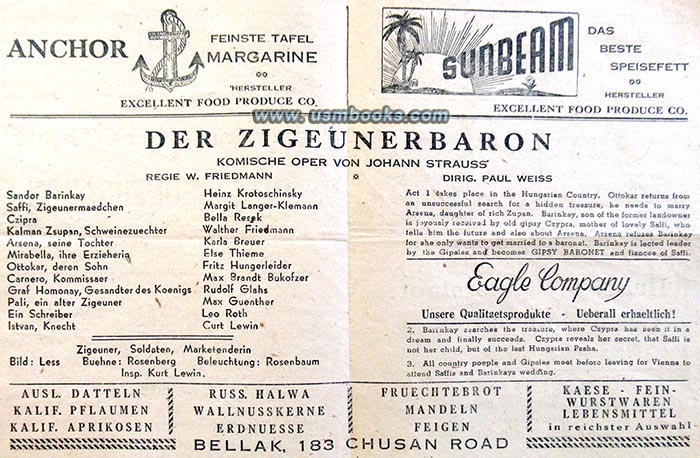 |
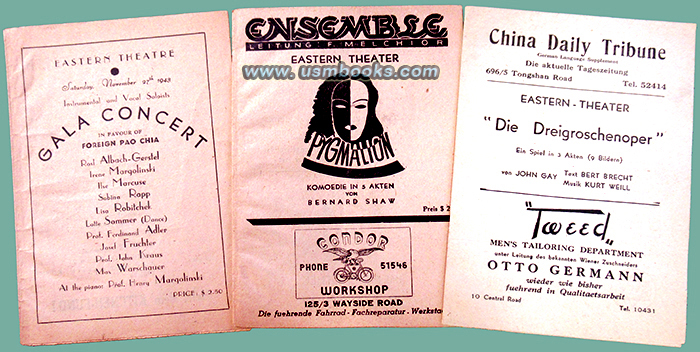 |
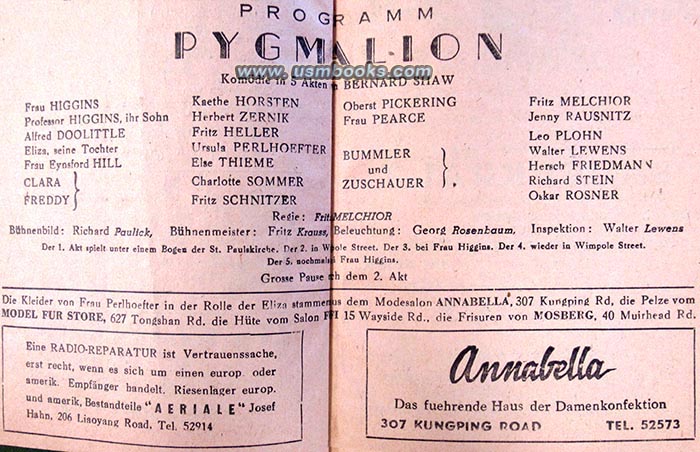 |
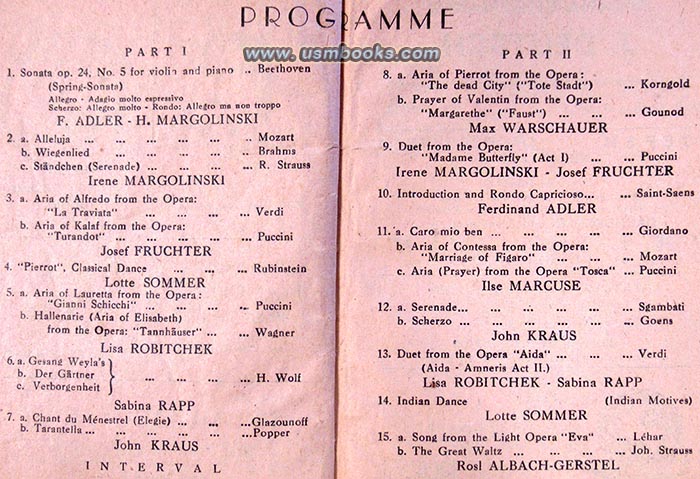 |
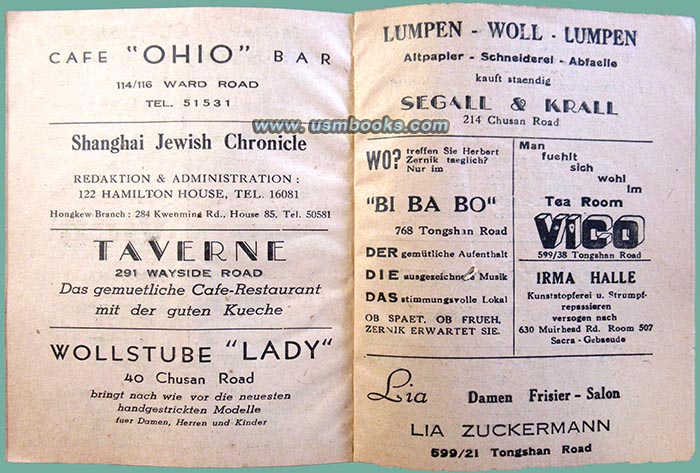 |
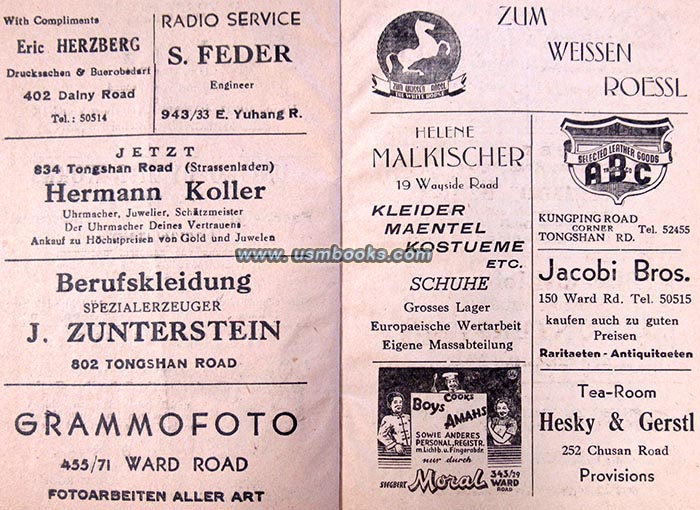 |
| Above and left, rare and colorful 1944 programs for charity performances of the Shanghai Musicians Association of Stateless Refugees. Below, in Hugo Oestreicher's suitcase we also discovered a rare example of post World War I German Notgeld (emergency money) issued in the city of Stolp, a village on the Baltic Coast. |
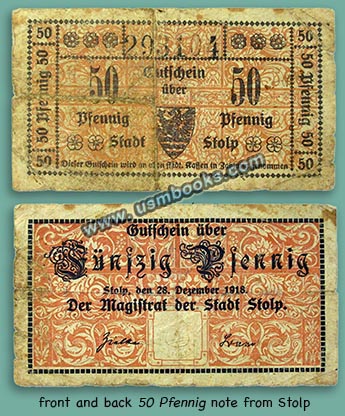 |
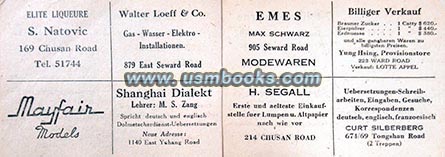 |
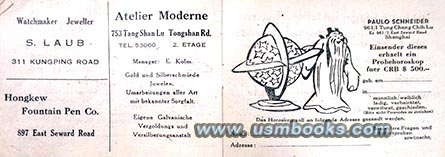 |
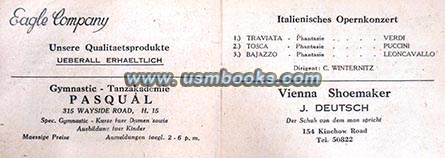 |
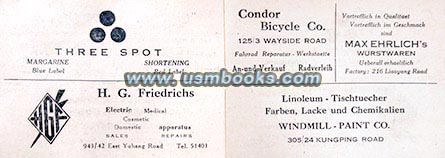 |
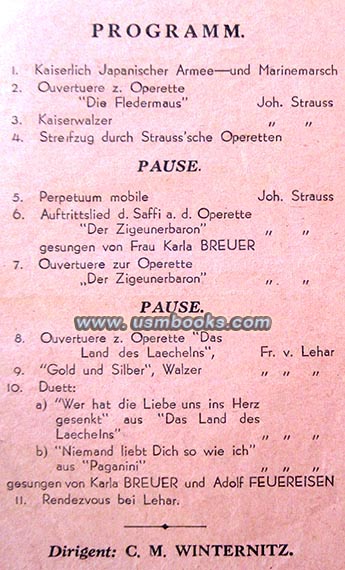
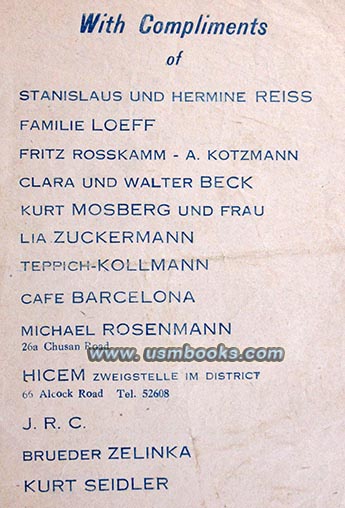
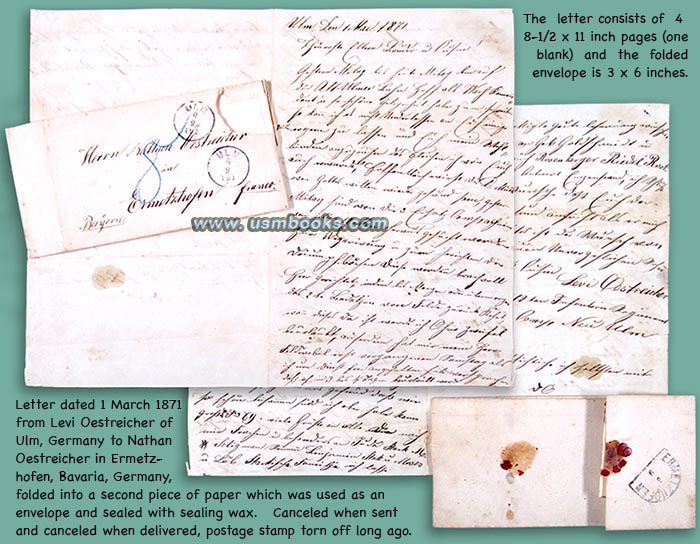
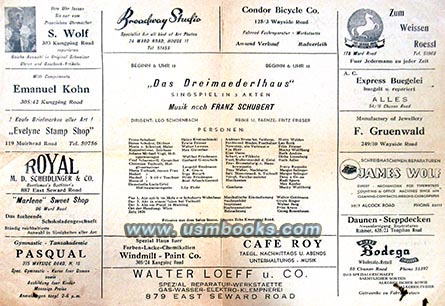
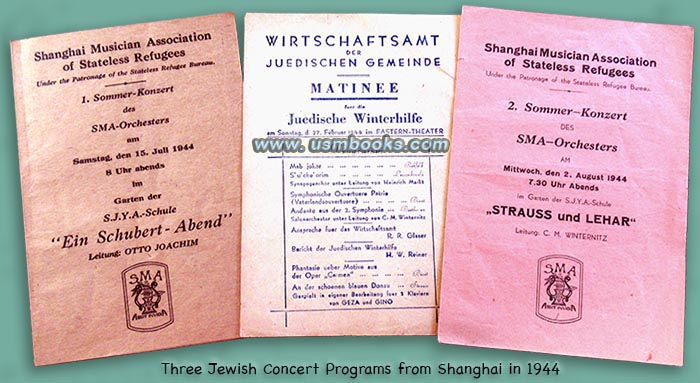
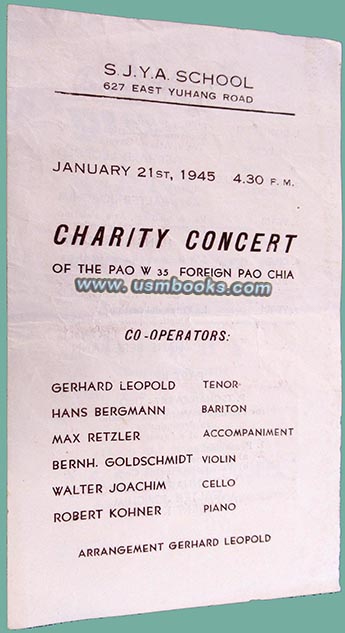
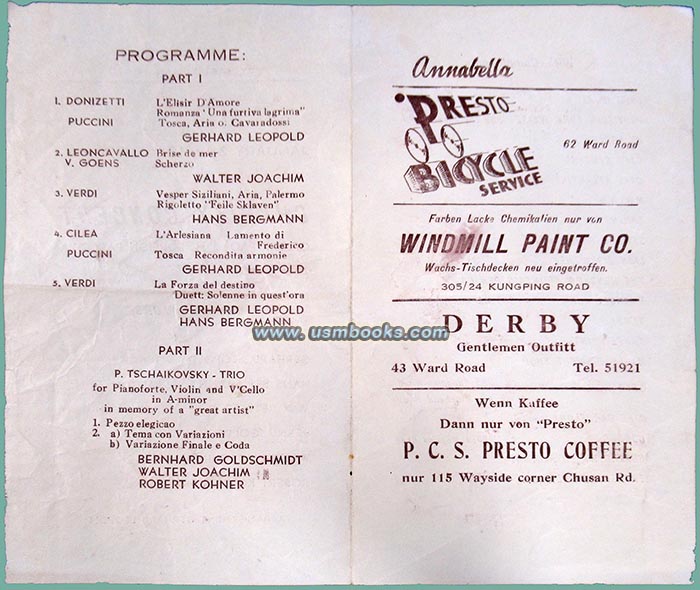
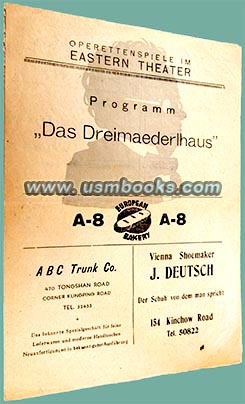
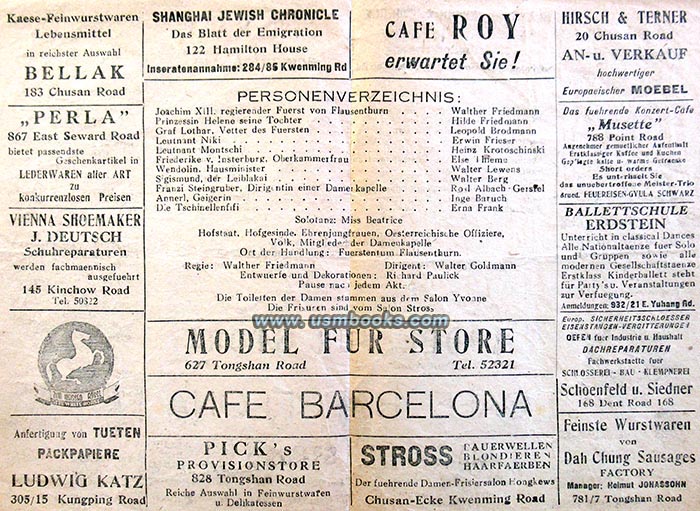 |
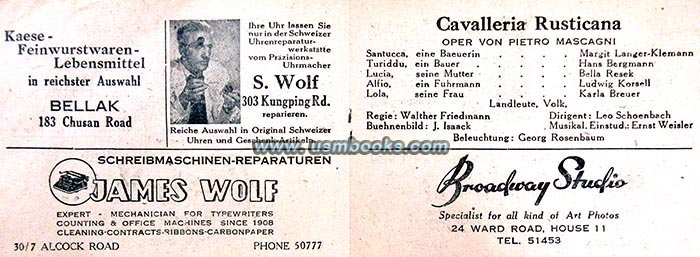 |
RETURN to the main page of the Oestreicher / Warschawski
Jewish refugee 'cache' for sale on USMBOOKS.com.
Above, is the program for a Shanghai Jewish Youth Association (S.J.Y.A.) School concert in Shanghai, the afternoon of 21 January 1945. It featured music by Puccini and Verdi and an all German cast.
Left, we show the front and back of an exceedingly rare 1944 entry ticket issued to Arnold Warschawski, which also allowed him to cross the Tongshan and Dent Road (apparently outside the Jewish settlement in Shanghai). It was for seat number 12 in row 4 for the Rosh HaShanah and Yom Kippur religious service of the Juedische Gemeinde Shanghai, the Jewish Community of Shanghai.
Note the instructions! No entry during prayers, and when getting up fold up your seat without making any noise!
Below, the multi-lingual program for a musical performance featuring a Japanese Navy March adapted from Schubert.
Left, we show the front and back of an exceedingly rare 1944 entry ticket issued to Arnold Warschawski, which also allowed him to cross the Tongshan and Dent Road (apparently outside the Jewish settlement in Shanghai). It was for seat number 12 in row 4 for the Rosh HaShanah and Yom Kippur religious service of the Juedische Gemeinde Shanghai, the Jewish Community of Shanghai.
Note the instructions! No entry during prayers, and when getting up fold up your seat without making any noise!
Below, the multi-lingual program for a musical performance featuring a Japanese Navy March adapted from Schubert.
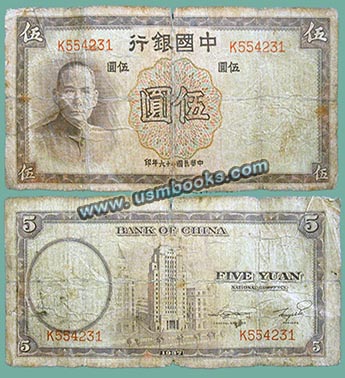
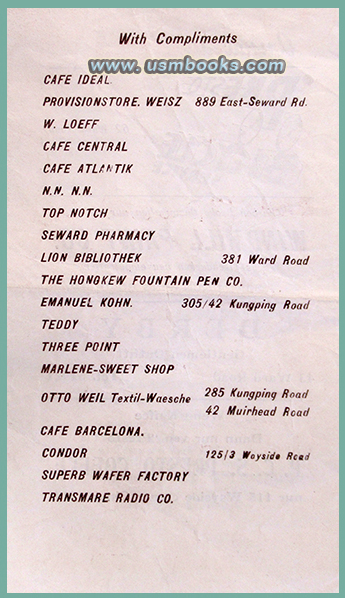
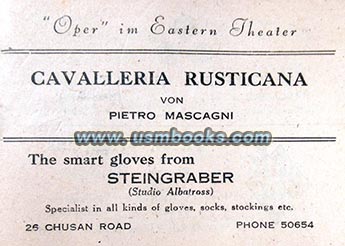
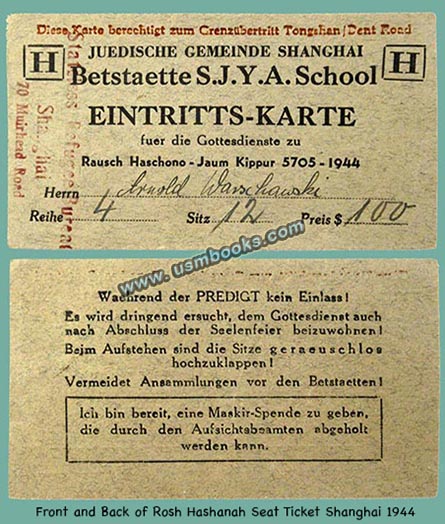
OESTREICHER / WARSCHAWSKI TREASURE TROVE
|
|
Among the ephemera saved by the Oestreicher-Warschawski family during time spent in Shanghai, China in World War II, we found the letter from 1871 shown below. It was sent from Ulm, Germany by Hugo Oestreicher's father Levi Oestreicher to his brother Nathan Oestreicher in Ermetzhofen. Both Levi and Nathan Oestreicher died before 1933.


